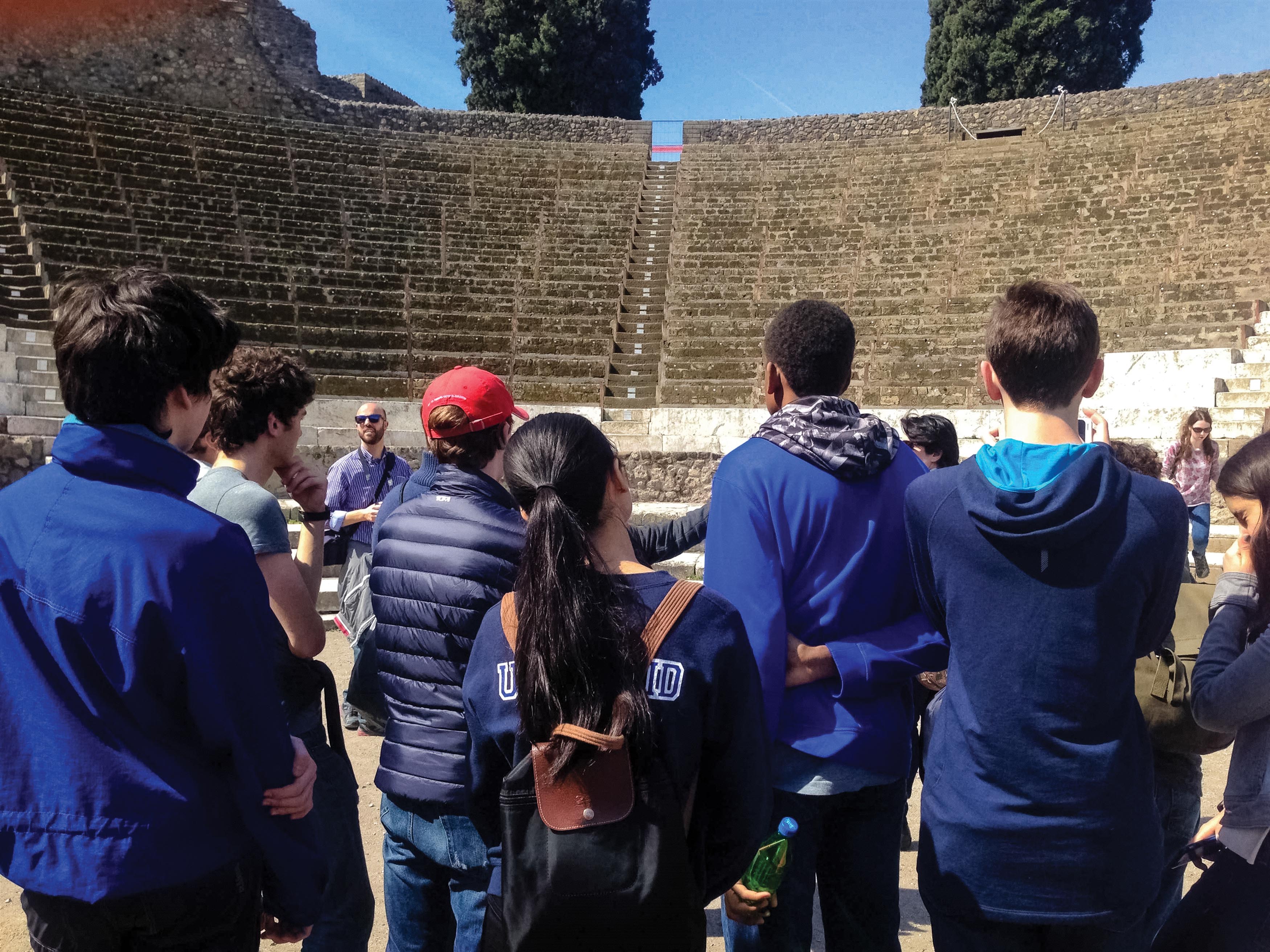89: W&CL Vivant Linguae Mortuae! Long Live Dead Languages!

Latin study presents an opportunity to engage with the language, philosophy, and culture of the Roman Empire and to explore its influence on our own civilization. Here students visit a Roman ruin.
Latin study at Dalton presents an enriching opportunity to engage with the language, literature, history, philosophy, art, government, and religion of the Roman Empire, and to explore its profound influence on our own civilization. Dalton students discover that 65% of English words (and more than 90% of those over two syllables) come from Latin. By systematically grappling with Latin’s precise and logical syntax, our students exercise and develop analytic thinking, bolstered by an acute attention to detail. The practice with close-reading that translating Latin texts provides helps students to build text-based arguments and understand how rhetoric may be employed in English as well as Latin. Translating Roman literature allows our students to reach into the past and explore the culture of ancient Rome from the Romans’ own perspective, thereby gaining insight into their own cultural moment and how the present is shaped by the past.
Students learn Latin grammar, vocabulary and translating skills through a systematic grammatical sequence as well as through translating continued text in Dalton Latin classes. They are taught to look for etymologies in English and to compare English and Latin grammatical systems. As they progress through the Latin program, students see more and more original Latin as they hone their translation skills. In Latin I and II, Dalton students first learn essential vocabulary, syntax, and grammatical concepts. This foundation then enables advanced students to translate history, rhetoric and poetry, from the writings of Caesar, Cicero, Pliny, to the works of Virgil, Horace and Catullus.
—Lori Langer de Ramirez, Ph.D, Director, World and Classical Language Department